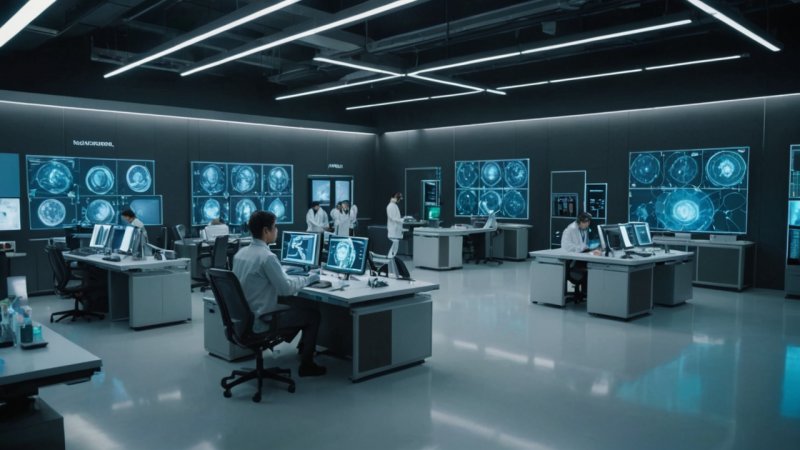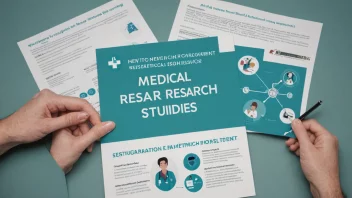In recent years, the integration of artificial intelligence (AI) into various sectors has sparked a revolution, and the field of drug discovery is no exception. As the pharmaceutical industry faces the dual challenges of rising costs and the urgent need for faster development of new medications, AI presents a promising solution. By leveraging vast datasets and employing advanced algorithms, AI technologies can significantly enhance the efficiency of identifying potential drug candidates, optimizing their properties, and predicting their interactions within the human body. This article explores how AI is reshaping drug discovery, the methodologies involved, and the implications for future medical advancements.
Understanding Drug Discovery
Drug discovery is a complex and lengthy process that typically encompasses several stages, including target identification, lead discovery, preclinical testing, and clinical trials. Traditionally, this process can take over a decade and cost billions of dollars. The intricacies involved in understanding biological systems and the interactions of compounds with these systems make drug discovery a daunting task. However, advancements in technology, particularly AI, have begun to streamline this process.
The Intersection of AI and Drug Discovery
AI encompasses a range of technologies, including machine learning, natural language processing, and neural networks. In drug discovery, these technologies can analyze large datasets, identify patterns, and make predictions that would be impossible for humans to achieve alone. For instance, machine learning algorithms can process chemical and biological data to identify potential drug candidates much faster than traditional methods.
One of the most significant contributions of AI in drug discovery is its ability to predict the biological activity of compounds. By training algorithms on existing data, AI can forecast how new compounds will behave in biological systems, which helps researchers prioritize which candidates to pursue further. This predictive capability not only accelerates the discovery phase but also reduces the likelihood of costly failures in later stages of development.
Key Applications of AI in Drug Discovery
AI is being utilized in various aspects of drug discovery, including:
- Target Identification: AI can analyze biological data to identify new drug targets, such as specific proteins or genes involved in disease processes. This helps researchers focus their efforts on the most promising areas.
- Lead Optimization: Once potential drug candidates are identified, AI algorithms can optimize their chemical structures to enhance efficacy and reduce side effects.
- Clinical Trial Design: AI can assist in designing more effective clinical trials by identifying suitable patient populations and predicting outcomes based on historical data.
- Drug Repurposing: AI can analyze existing drugs to find new therapeutic uses, which can significantly shorten development timelines and reduce costs.
Case Studies of AI in Action
Several companies and research institutions have successfully implemented AI in their drug discovery processes. For example, Atomwise, a startup specializing in AI for drug discovery, uses deep learning algorithms to analyze the interactions between small molecules and proteins. Their technology has led to the identification of potential treatments for diseases such as Ebola and multiple sclerosis.
Another notable example is BenevolentAI, which combines AI with scientific expertise to identify and develop new drug candidates. Their platform has successfully predicted new uses for existing drugs and accelerated the discovery of new compounds for diseases with high unmet medical needs.
Challenges and Limitations
Despite the promising advancements, the integration of AI in drug discovery is not without challenges. One of the primary concerns is the quality and availability of data. AI algorithms require vast amounts of high-quality data to function effectively, and in many cases, such data may not be readily available. Additionally, there are concerns regarding the interpretability of AI models; understanding how an AI system arrives at a particular conclusion can be complex, making it difficult for researchers to trust its predictions fully.
Moreover, ethical considerations surrounding AI in healthcare, such as data privacy and the potential for bias in algorithms, must be addressed to ensure that AI technologies are used responsibly.
The Future of AI in Drug Discovery
As AI technologies continue to evolve, their impact on drug discovery is expected to grow. The increasing availability of data, coupled with advancements in computational power, will enable more sophisticated AI models to emerge. Future developments may include improved algorithms that can integrate diverse types of data, such as genetic, clinical, and environmental information, leading to more personalized medicine approaches.
Furthermore, collaborations between AI companies and pharmaceutical firms are likely to increase, fostering innovation and accelerating the drug discovery process. As the industry adapts to these changes, we may see a significant reduction in the time and cost associated with bringing new drugs to market.
Conclusion
Artificial intelligence is poised to transform the landscape of drug discovery, offering new avenues for research and development that were previously unimaginable. By streamlining processes, enhancing predictive capabilities, and facilitating the identification of novel therapeutic candidates, AI holds the promise of not only improving the efficiency of drug discovery but also addressing critical health challenges. As we continue to explore the potential of AI in this field, it is essential to navigate the accompanying challenges thoughtfully, ensuring that these technologies are harnessed for the benefit of patients and society as a whole.






